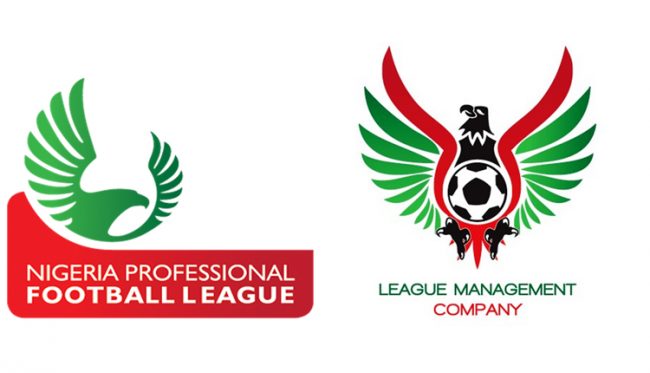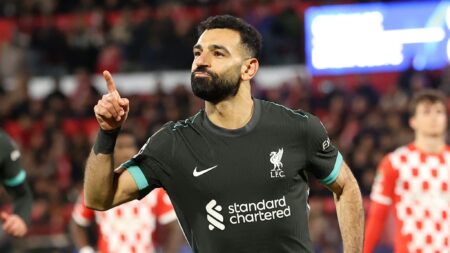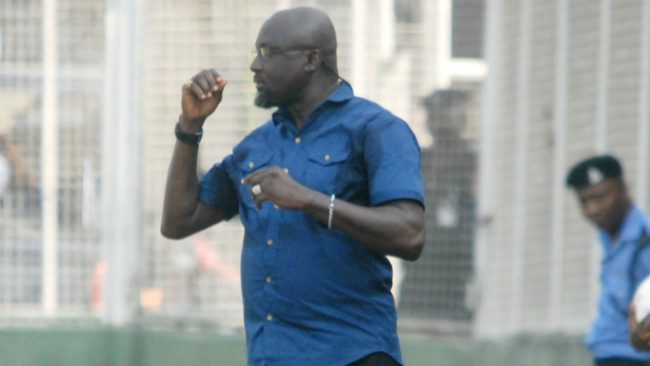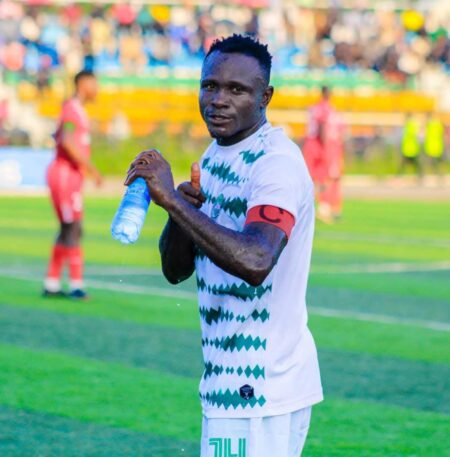The sporting world has been agog with a developing reality; the reality of agency relationship in the world of sports. The disputes arising from transfer related transactions between football clubs have now escalated to the intermediaries or football agents who broker such deals. Interestingly, such disputes now include agents who merely introduce the parties to enter into employment contracts with no visible proof of representation for either party.
It was reported in 2017-18 alone, that the Premier League paid £211 million to agents. Mino Raiola, Paul Pogba’s agent reportedly made over £40 million from Pogba’s sale to Manchester United in 2016. Given the humongous amount of money involved in such deals, it is not surprising that the parties gloss over some of the underlying contractual issues arising from such relationships.
The Football Association of England (FA) has blazed the trail through regulations by introducing a specialist arbitration process known as Rule K. This regulation now requires formal registration by football intermediaries/agents with the FA with a view to streamlining the dispute resolution process.
Interestingly, some of the ‘participants’ contemplated within the Rules fail to draft written contracts stipulating the dispute resolution forum even though they are both registered participants. This oversight has created some uncertainty as to the proper construction of Rule K and whether it is in fact, applicable regardless of the failure to enter into written contracts. At the centre of this uncertainty are intermediaries who have sought to leverage on the same to commence disputes in the regular courts in breach of Article 59 of the FIFA statute.
Also Read – The NPFL: A Legal Perspective On The Fans, Ticketing, And Commercialization Of The Domestic League
The pith of these disputes is usually on the oft-neglected principle of multilateral contracts. The recent case of Mercato Sports (UK) Ltd v Everton FC [2018] is the latest development in the use of multilateral contracts (ie horizontal and vertical contracts) in sports to resolve this growing area of dispute. This decision has had a chastening influence on sports especially in the UK which has introduced a regulation to address the issue. The situation is more dire for Nigeria which has no regulation in this regard and might as well consider this as a wake-up call to develop a better regulatory framework in this regard.
BRIEF FACTS OF THE CASE
A professional footballer “AB” (name withheld) entered into an employment contract with Everton F.C. “the defendant”. Mercato UK Ltd and Mr. Mark McKay “the claimants” contended that having facilitated the transfer process of player AB to the defendant club, they were entitled to receive payment for their service(s). The defendant club however, did not agree to bear such liability which led the claimants to institute an action (citing unjust enrichment) before the High Court in Manchester. The defendant in invoking the provisions of Section 9 of the UK Arbitration Act (“UKAA”), filed an application seeking to stay the proceedings before the High Court on the ground that both parties were bound by an arbitration agreement (Rule K of the Football Association Rules) to institute any such dispute first before a competent arbitration panel, rather than an ordinary court of law. At the root of this case review is the judicial analysis of the concept of multilateral contracts and its application in sports law.
THE ISSUES
The FIFA Statutes recognize and allow for the use of intermediaries when facilitating an employment contract and/or transfer agreement. To this end, FIFA enacted the Regulation on working with Intermediaries which stipulates the scope and requirements of a player/club and intermediary relationship. An intermediary is bound by the Arbitration Agreement under the FA rules by virtue of a conjunctive reading of the definition of a ‘participant’ together with Rule K, under the FA rules. The issue, therefore, was whether Mercato was bound by the provisions of FA Rule K and accordingly, a party to the arbitration agreement therein.
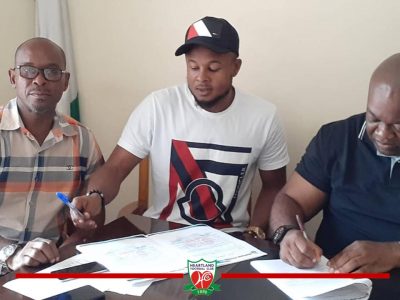
FINDING/DECISION
The court found that Mercato was in fact bound by the rules of the Football Association. The court came to this conclusion by a careful analysis of the facts of the case which showed that there was an implied contract with the defendant club (from the 1st claimant’s use of the intermediary registration number which was construed as an accession to be bound by the rules), such that their dealings were covered by the express provisions of FA Rule K which invariably brought the dispute within the scope of the arbitration agreement. The defendant’s application for stay of proceedings was granted and the claim was referred to arbitration pursuant to the FA rules.
LEGAL COMMENTARY/REVIEW OF THE DECISION
Participation in sport or in activities connected with a sport does not automatically connote that the participants are subject to the rules of that sport. In reaching this conclusion the court must undertake a careful analysis of the facts and peculiar circumstances to ascertain whether a vertical contract exists between the participant and the sporting association either expressly by accession, thereby creating a horizontal contract between a participant and other participants subject to the Association’s Rules.
The locus classicus case of Clarke v. Earl of Dunraven & anor (The Satanita) laid the foundation for understanding the principle of multilateral contracts. In this case Clarke and the Earl of Dunraven entered into a yacht race organized by a yacht club, with each entrant expressly agreeing to be bound by the Association rules which stipulates that where any yacht owner disobeys the rules of the association, such person(s) will be liable for any damages arising therefrom. It so happened that during the course of the race, Clarke’s yacht collided with the Earl’s yacht thereby sinking it and even leading to the death of a crew member. Aggrieved, the Earl brought an action for breach of contract against Clarke seeking the full amount of damages tantamount to the loss suffered. In coming to a decision, the court had to determine whether there was actually a contract between the yacht owners to agree to the Association’s rules which provided in Rule 24 that; “If a yacht, in consequence of her neglect of any of these rules, shall foul another yacht, or compel other yachts to foul, she shall forfeit all claim to the prize, and shall pay all damages”. The court of first instance found for the defendant. However, on appeal, the decision was overturned and the Court of Appeal decision was affirmed by the House of Lords which found that there was indeed a contractual relationship. The court in arriving at this decision held that a vertical contract existed between the yacht owners and the club as the former had each agreed to be bound by the rules of the latter, which then invariably created a horizontal contract between the yacht owners. Hence, Lord Herschell held thus: “I cannot entertain any doubt that there was a contractual relation between the parties to this litigation. The effect of their entering for the race, and undertaking to be bound by these rules to the knowledge of each other, is sufficient, I think, where those rules indicate a liability on the part of the one to the other, to create a contractual obligation to discharge that liability…” (Emphasis ours).
Also Read – Emiliano Sala: The Birth of the “Death Clause” and Jurisprudential Lessons for the Nigerian Football League
More recent football cases have arisen on the subject which sought to answer similar question of whether a horizontal contract can be implied between parties on the basis that the parties have each agreed (vertical contract) to adhere to the English FA rules. In Davies v. Nottingham Forest FC (2017) which is in pari materia with the Satanita case, the court held, notwithstanding the fact that the manager and club did not have an express arbitration agreement between each other, that they were impliedly, parties to an arbitration agreement pursuant to Rule K of the FA Rules. Hence, on the basis that both parties did not contend the vertical contract they each had with the FA to be bound by the FA rules and by virtue of the fact that both parties knew that each other was bound, it gave rise to a horizontal contract.
In the same year a similar question was brought before the court in Wilfred Bony v. Kacou & 4 others, however, the court came to a different conclusion from the decision in the Davies case. In this case the claimant had a written agreement with some of the defendants (1st and 3rd) which did not contain an arbitration clause, and did not have any written agreement at all with the other defendant agents (2nd and 4th). The defendants contended that the matter should be stayed at the court and referred to arbitration on the basis that parties’ actions fell under Rule K provision of the FA Rules. The court of first instance held that irrespective of the latitude of Rule K, it would be of no effect if its provisions are not incorporated into a legally binding contract between the parties. More so, the defendants did not fall under the category of Agents as defined in the FA Football Agent Regulations and as such could not be deemed to share an implied vertical contract with the football association, in the absence of an express contract between them. This decision was upheld on appeal even as the Appellant relied on the Satanita case. The court was of the firm view that the facts in both cases were manifestly different considering firstly, that while there was an implied vertical contract between each of the yacht owners and the club to be bound by the rules of the Association in the Satanita case, there was no such relationship between the claimant and the defendants in the Bony case. Also, there was no contractual linkage at all between the defendants and the Football Association to establish a multilateral contract in the first instance.
Wilfred Bony’s case shares a similarity with the instant case under review to the extent that the defendants were alleged participants far removed from the actual playing of football. In instances like this the test will be more carefully applied. When a participant is far removed from the actual playing of football for example, a participant for business purposes (which happens to be how the relationship of the 1st claimant and the defendant would be categorized), two questions would be raised. Whether there is a vertical contract between the 1st claimant and the English FA (be it expressly or by impliedly)? If yes, whether it gave rise to a horizontal contract between the 1st claimant and the defendant whereby each agreed to be bound by the rules in their dealings with each other in relation to the English FA activities?
The court was able to ascertain the implied contractual link between the 1st claimant and the defendant through the registration number found on the 1st claimant’s invoice for payment earlier sent by the 1st claimant to the defendant.
Implication of the decision for the Nigeria Professional Football League (NPFL);
At the domestic level, the NFF Statutes make provision for a National Dispute Resolution chamber tasked with resolving the disputes that may arise between the Federation, its members, players, officials, match and player’s agents, that do not fall under the jurisdiction of the country’s judicial bodies. In the same vein, the NPFL Framework Rules provides for an Arbitration Committee to address all disputes arising from the transfer of players, players’ contracts and other contracts with officials of a club. Regrettably, this provision fails to consider the fact that there are different participants within the Football Federation- ranging from referees to managers, players, coaches and other employees of a club who participate from time to time, in any activity sanctioned by the Federation. Due to the various categories of ‘actors’ involved in the league, the creation of specialist tribunals for each category of participants in the league would not be out of place as this will assist in a more effective dispute resolution mechanism. The intendment of the FIFA statutes as it concerns dispute resolution would be more effectively served if the NPFL Framework Rules is revised to accommodate and address disputes concerning specific participants within the league.
Apart from the lacuna in the NPFL Framework Rules as regards provisions for specialist tribunals, Section D which purports to vest jurisdiction on the Dispute Resolution Chambers in contractual matters concerning players and officials of a club appears to oust the jurisdiction of the National Industrial Court of Nigeria (NICN) where such contract is one bordering on employment and other labour related issues. By Section 254C of the Constitution of the Federal Republic of Nigeria (1999 as amended) the NICN is vested with exclusive jurisdiction to handle matters of employment and other labour-related issues. This jurisdiction cannot be ousted by Section D of the NPFL Framework Rules which purports to vest the same jurisdiction on the Dispute Resolution Chamber as it is trite that any law that is inconsistent with any provision of the Constitution is null and void to the extent of the inconsistency. However, the law in Nigeria is that employment-related issues are not within the contemplation of arbitrable disputes under the Arbitration and Conciliation Act.
With the promulgation of the FIFA Regulation on working with Intermediaries 2015, the Nigeria Football Federation is enjoined to implement a domestic Intermediary registration system to collect information of intermediaries who intend to deal in a similar capacity with a player or club under its rules and regulations. Commendably, the Federation keeps a periodically updated list of registered intermediaries on its official website. However, one of the salutary lessons for stakeholders in the sports industry in Nigeria, arising from this decision is to always put their intentions in a written form to avoid the needless judicial inquiry into such issues.
CONCLUSION
The decision of the court as enumerated above has far-reaching effects on contractual relationships between parties in the world of sport. In essence, where parties have not expressly/directly agreed to be bound by certain association rules, such rules will nevertheless be construed to be binding on the parties by virtue of their participation in the competition organized by the league body, in any capacity.
REFERENCES
1. Article 4 of regulations governing the application of FIFA Statutes.
2. [1897] AC 59
3. [2017] EWHC 2095
4. [2017] EWHC 2146
5. Paragraph 43
6. Article 68 of NFF Statutes
7. Section D of the NPFL Framework and Rules
8. Article 3 & 6 of the Regulations on working with intermediaries
AUTHORS
Felix Nwosu & Ayodeji Abdul
(Associates in Perchstone and Graeys LP)


